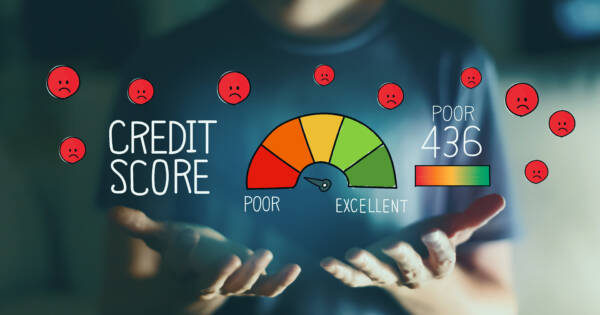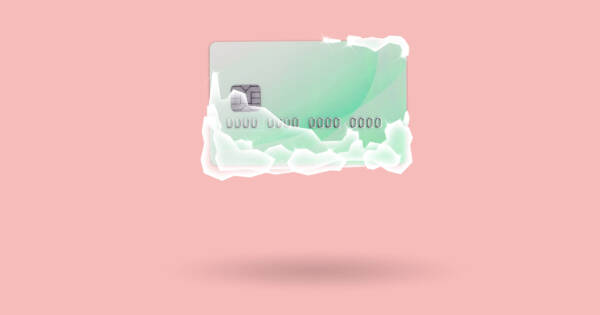Credit card debt is one of the most common financial problems facing Americans today. And once you begin to build this type of debt, it can be nearly impossible to overcome. With the average U.S household carrying three credit cards and an approximate card debt of $4,427, the costs of credit card debt are overwhelming. It’s no surprise that those with credit card debt are struggling. Paying debt on multiple credit cards can lead to high interest, fees, and difficulty keeping track of what’s due when. If you feel like you’re barely treading water, there is an option: a debt consolidation loan.
What is a Debt Consolidation Loan?
A debt consolidation loan offers a way to roll all of your credit card debt into one single payment. And it could help you pay down your debt faster, without suffering from sky-high interest rates on multiple cards.
Simply put, a debt consolidation loan is a personal loan. However, it’s a loan that you use to pay off all outstanding credit card debt. When you take out the loan, the funds are used to eliminate your debt on multiple cards. Then, you merely have to repay this single loan each month.
Debt consolidation loans can simplify your debt and make it easier to repay. Instead of dealing with multiple credit card accounts, different interest rates, and other complications, you’ll deal with one loan and one lender.
A debt consolidation loan can be a good solution if you find yourself in one of the following situations:
- Your total debt is no more than 40 percent of your gross income.
- You’re able to qualify for a lower interest rate (compared to your credit cards) on a debt consolidation loan.
- You’ll be able to make consistent, on-time payments to repay your loan.
- You’re prepared to create a plan to avoid getting into future debts.
There are a number of pros and cons that come with a debt consolidation loan. And it’s important to consider all of these before deciding it’s the right choice for you.
The Pros of Debt Consolidation Loans
Debt consolidation loans can have a number of great benefits for those struggling with credit card debt. And depending on your financial situation, the pros may make this type of loan a smart choice for you.
You Can Repay Debt Sooner
A debt consolidation loan can help you repay your debt sooner by setting you up with an easier path towards a $0 balance. While credit cards allow you to pay a small amount of your choosing every month, debt consolidation loans require fixed payments on a monthly schedule. You’ll know when your payment is due each month and when you’ll ultimately pay off the entire loan.
Your Debt Will Be Simplified
Handling debt across multiple credit cards means you have a lot to keep track of. You have to make payments on multiple accounts, manage multiple balances and limits, and are held to multiple high interest rates. But with a debt consolidation loan, you have only one payment and one interest rate. And your monthly payment never changes.
Your Debt Will Carry a Lower Interest Rate
The interest rate on debt consolidation loans is typically far lower than credit card interest rates. The average interest rate on a credit card is 18.7 percent. But the average interest rate of a personal loan is significantly lower – it’s just 10.07 percent. Choosing a debt consolidation loan can ultimately help you pay less over the lifetime of the loan.
You Can Improve Your Credit Score
When you take on a debt consolidation loan, you may be able to improve your credit score as you repay the loan. Payment history makes up 35 percent of your credit score, so if you’re able to make on-time payments regularly, you’ll see your score increase over time.
The Cons of Debt Consolidation Loans
Like any significant financial decision, taking out a debt consolidation loan can come with drawbacks. While there are many benefits to debt consolidation loans, it’s also important to know the potential cons.
A Debt Consolidation Loan Won’t Solve Your Financial Problems
While a debt consolidation loan will eliminate your credit card debt in favor of one single personal loan, it can’t solve every financial problem. It won’t prevent you from opening more credit cards or racking up debt on your old cards. It won’t solve issues like overspending or poor money management. These are issues you’ll have to deal with separately to ensure you don’t fall into debt again.
You’ll Pay Costs in Addition to the Loan Itself
Debt consolidation loans do come with upfront costs. You may be responsible for paying costs like loan origination fees, balance transfer fees, closing costs, and annual fees. Make sure to factor these into your payment amounts to decide if it’s a good decision for you.
Your Interest Rate May Not Decrease
Although interest rates are typically lower on debt consolidation loans, you may not wind up with a lower rate. The interest rate is determined by your credit score, the loan amount, and the loan terms. And your current debt may affect the interest rate you’re able to secure.
When you’re considering your debt consolidation options, make sure to think about these potential drawbacks. Every financial situation is different, and it can affect whether or not a debt consolidation loan is the right choice for you.
How to Begin the Debt Consolidation Process
If you’re ready to eliminate your credit card debt and repay what you owe via a debt consolidation loan, you can get started today. Here’s what you need to do in order to start consolidating your debt.
1. Shop Loans From Multiple Lenders
It’s important that you consider multiple lenders and different personal loans. Every lender and loan will have different terms. And you can only get the best possible terms by shopping around. Search to see what financial institutions are offering, including your personal bank, local credit unions, and personal finance lenders. Compare interest rates too to see how much you’ll pay over the loan’s lifetime.
2. Ask About Fees
>While you’re shopping for a debt consolidation loan, make sure to ask each lender about fees. You’ll want to understand all of your costs upfront, before you choose a loan and lender. If you ask these questions ahead of time, you won’t be surprised by added costs later on.
3. Prepare to Pay an Origination Fee
You’ll need to have a small amount of money in your bank account in order to officially secure a debt consolidation loan. Typically, you’ll need to pay five percent of the total loan amountin order to get approved as a borrower. Make sure you can afford to put down five percent of your debt.
4. Get Qualified
In order to secure a debt consolidation loan, you’ll need to qualify for the loan with a lender. You can typically fill out the required paperwork online. Once you’ve chosen a lender, make sure to get qualified so the loan can be approved and funded.
Once you’ve completed these steps, you’ll be able to get approved and qualified for a debt consolidation loan. Remember that taking on a debt consolidation loan does come with the responsibility to make on-time payments to pay off your original debt amount. If you’re able to find a good lender with a lower interest rate, this move could simplify your debt and make it easier to pay down over time.
 Bacho / Shutterstock
Bacho / Shutterstock







